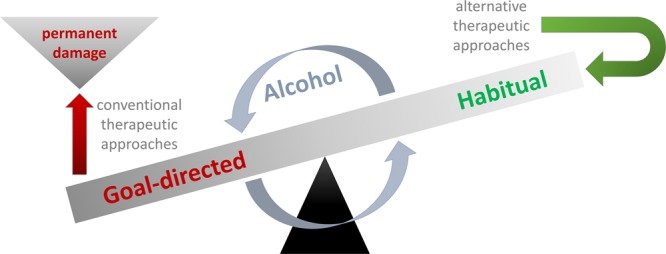FIGURE 1.

Alcohol impairs the balance between goal-directed and habitual behavior so that habitual behavior like compulsive drinking can no longer be kept in check by goal-directed control mechanisms such as inhibition. Many conventional therapies primarily aim at improving/augmenting goal-directed cognitive control so that habitual drinking can be overcome. Unfortunately, alcohol abuse may permanently damage frontal brain areas and thus diminish control faculties so that quite a few AUD patients may never develop goal-directed behavior that can effectively keep their drinking habits in check. Against this background, I would like to espouse alternative therapeutic approaches like HRT which aim at modifying or changing habits instead of trying to inhibit them via goal-directed behavior (for details, please see Habit-Based Treatment Options).
